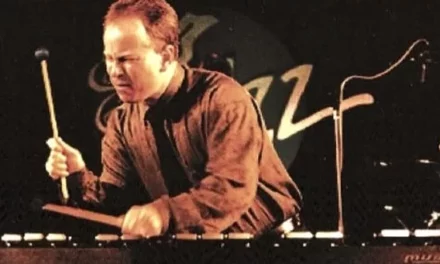After Messiah, Israel in Egypt is probably Handel’s most popular oratorio, usually revived this time of the year with Passover and Easter looming. This year the North Carolina Master Chorale, once known as the Raleigh Oratorio Society, tackled this most unusual of the composer’s many oratorios.
Handel came to England in 1712 from Hanover following his old boss, who became George I of England. The darling of the Italian opera buffs, Handel promptly made himself the center of England’s musical life with a long string of operas, anthems, and popular works for instrumental ensembles. But by the mid 1730s the opera public had tired of these exercises in vocal pyrotechnics, static, repetitious plots, improbable love stories and strutting castrati with their pretensions and immense fees (sound familiar?). Handel, ever sensitive to public taste, as well as the bottom line, cast around for a new medium to regain his popularity. The result was what is known today as the “Handel oratorio,” based on biblical and classical subjects and meant for popular entertainment, not as religious fare.
Israel in Egypt was one of his early experiments. Written in 1738, it was initially a dismal failure, not least because the public was unfamiliar with the new genre. It is a choral oratorio with only a few solo recitatives, short arias and duets interspersed, yet nevertheless requiring five soloists of which only three have anything significant to do – and even they don’t do much. Israel in Egypt certainly lacks the drama of Handel’s later oratorios, and one imagines that had he written the work later in his life, he might well have begun it with Moses’ dramatic confrontation with Pharaoh and ended it with the actual exodus. As it is, all the drama takes place in Part I, leaving the text of the Part II with nothing but repetitions of the parting of the Red Sea and songs of praise.
Nevertheless, Israel in Egypt has some of the most vivid tone painting in all of classical music in the instrumental accompaniments describing the ten plagues. In “Their land brought forth frogs” the music leaps along in a dotted rhythm figure, while in “.there came all manner of flies and lice.” the music flits and buzzes. The chorus was most impressive in “He gave them hailstones,” while the orchestra pelts them with aural stones. The chase of the Hebrews by Pharaoh’s army is a fugue, and the aria “Thou didst blow with the wind” is accompanied, of course, only by the winds.
In general, the performance, under MCNC’s director Alfred Sturgis, was competent and professional, but not the group’s best effort. One of the biggest problems of the performance was balance between instruments and singers. You can’t pit 27 instruments – only 16 strings – against a mass of 150+ voices. Most of the time, it didn’t matter all that much, but in those numbers in which the orchestra provides more than just a doubling of the voices, it was often overwhelmed.
While the chorus as a whole put in a good performance, the sopranos were surprisingly weak in the upper register – usually it’s the tenors who have to field that criticism. The problem may have resulted from splitting the sopranos and placing the two groups on the extreme ends of the chorus, so that they never quite sounded like a solid unit. This placement works for the few numbers for double chorus but most of the oratorio is standard SATB.
For a work of this magnitude, Israel in Egypt presents some economic difficulties in that you have to hire five soloists for so little to do. Mezzo soprano Mary Gayle Greene, one of the rare true contraltos in the world, was by far the best of the soloists. Her warm voice, fine intonation and excellent projection, coupled with sensitivity to the text, were a delight. And she got to sing the original hip hop piece, “Their land brought forth frogs” with its froggy accompaniment. Soprano Jeanne Ennis has a fine but somewhat placid voice, which worked better in the less dramatic Part II. Tenor Timothy Sparks has a reedy voice but superb diction, as we’ve noted in other reviews. Since he has the rare gift of making every word clearly understandable he was best in the recitatives. Baritone Evan Rogister and bass Matthew Singer had only a single short duet, “The Lord is a man of war” in Part II, which was over before they warmed up properly. Sturgis actually used a sixth soloist, bringing in Toni Mascherin – why, we are not sure – for the lower part in the duet with Ennis “The Lord is my strength.” The duet had intonation and balance problems, perhaps because Ennis, the pro, has a voice that naturally projects better.
Messiah, Israel in Egypt and Judas Maccabaeus have become a staple of the area’s chorales. For next season, how about some of Handel’s less familiar oratorios.











